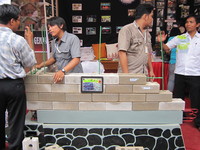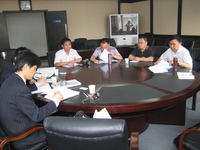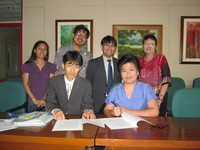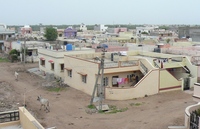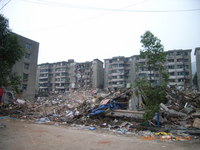14-15 March 2024 (Noto Peninsula,Japan)
Following the Noto Peninsula earthquake on 1 January 2024, Asian Disaster Reduction Center (ADRC) had been reporting in English on the overview of the earthquake and summarizing the official information released by the national and local governments on the damages and responses (https://www.adrc.asia/publications/disaster_report/index.php). The report was kept updated until the end of February.
On 14-15 March 2024, two and a half months after the earthquake, ADRC researchers and visiting researchers from some of our Member countries visited the Noto Peninsula to inspect the damage caused by the earthquake and tsunami, and reviewed the ongoing reconstruction activities while pointing out the challenges. Road restoration work, which is key to facilitate evacuation, rescue, relief efforts, and restoration assistance, was underway, primarily on the "Noto-satoyama Kaido" that serves as arterial road. There were many areas where the road was damaged by landslides, mainly in mountainous areas, and only one lane was being temporarily restored to allow traffic. Road surfaces were damaged in many places and hillsides and mountainsides were only temporarily restored by piling up sandbags. This means that full restoration is still expected to take a considerable amount of time. We could also observe that police forces from prefectures of other regions such as Kansai, Kanto, Tohoku, and Hokkaido were providing traffic control and other support activities.
Many traditional wooden houses collapsed in the affected central area, including Wajima and Suzu cities. Although the visiting researchers are not familiar with the Japanese architectural style of wooden houses with tiled roofs, they could tell that the heavy tiled roofs caused much of the damage. They discussed their opinions for promoting measures to strengthen the earthquake resistance of such traditional houses.
In Wajima City, the participants observed the Asaichi Street, where a fire spread and a seven-story building collapsed nearby. We are confronting many issues, such as disaster reduction measures in areas where wooden houses are densely built and firefighting measures in the event of an earthquake and tsunami. In view of this, foreign visiting researchers compared the buildings and urban development in other countries, such as comparing the 2001 Gujarat earthquake in India and the 2024 Noto Peninsula earthquake in Japan.
In many areas where liquefaction had occurred, manholes were raised and utility poles were tilted. Even in Uchinada Town, which is located more than 100 km away from the epicentre, many houses were found to be tilted.
The participants also observed the fishing port in Wajima City, which was rendered unusable due to ground upheaval, and the tsunami damage in Suzu City. Furthermore, they observed the recovery support activities, such as the use of "Emergency Safety Evaluation" sheet (green, yellow, and red) to assess the emergency danger level of houses, water supply trucks, kitchen cars, emergency medical cars, and temporary housing construction, to gain knowledge on future DRR measures in different countries.
(2024/03/22 15:00)


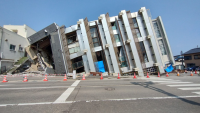
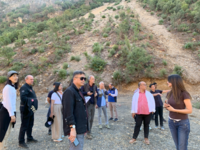
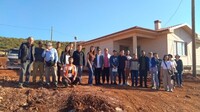
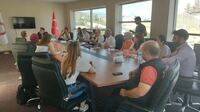
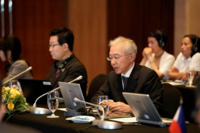

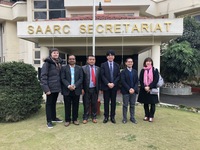
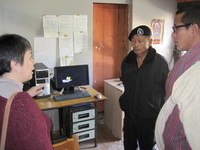
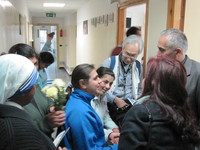
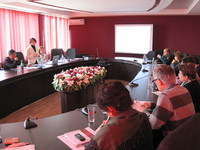
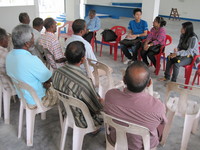
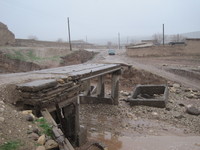

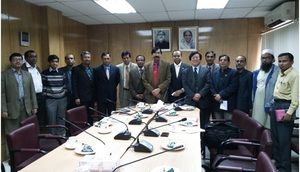
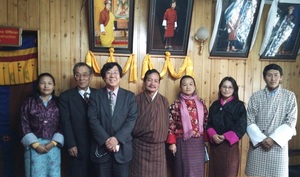
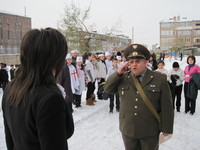
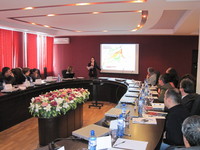
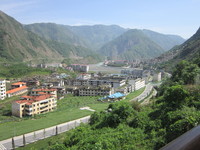
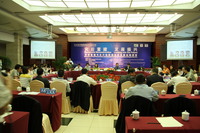


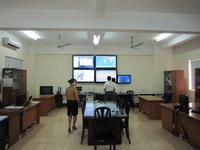
-thumb-300x225-1022.jpg)
-thumb-300x225-1025.jpg)
